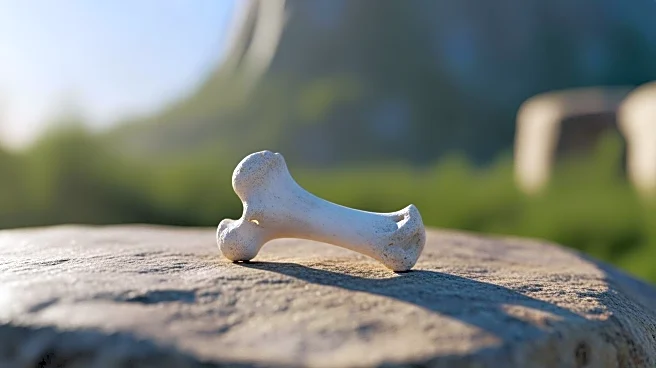What's Happening?
A multidisciplinary study led by the National Center for Research on Human Evolution challenges conventional views on scavenging in human evolution. The study argues that scavenging was a necessary strategy
to supplement hunting and gathering, providing access to high-energy food sources with minimal effort. It highlights the evolutionary advantages of scavenging, including anatomical adaptations and social cooperation, and suggests that scavenging played a crucial role in shaping human development.
Why It's Important?
The study reshapes understanding of human evolution, emphasizing the role of scavenging as a dynamic foraging process. It challenges the notion of scavenging as a primitive survival tactic, highlighting its significance in human adaptability and development. This perspective offers new insights into the evolutionary history of humans.
What's Next?
Further research may explore the implications of scavenging on human evolution and its role in shaping social and cognitive skills. Archaeologists and anthropologists might reconsider the importance of scavenging in their studies of early human societies.
Beyond the Headlines
The study suggests a broader understanding of human evolution, emphasizing ecological intelligence and adaptability. It challenges traditional narratives and highlights the complexity of human development.










